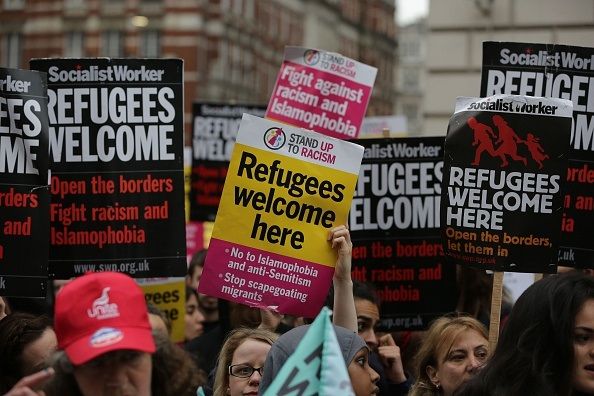
Immigration went toe-to-toe with the economy in this referendum as the competing Leave and Remain camps focused on the issues that meant most to their core supporters. Yesterday's historic vote, which saw the U.K decide to leave the European Union and the prime minister announce his resignation in response, presents a series of challenges to our political leaders—including that of restoring public trust in the government's ability to manage immigration competently.
Britain voted for Leave for three main reasons: the cost of being in the club, skepticism about the economic benefits in the era of the struggling Eurozone, and the desire for greater control over immigration.
But immigration was the main reason that the Brexit referendum was held in the first place. The issue is much more salient to the public than the EU itself, ever since immigration levels rose to record levels after the eastward expansion of the EU.
It was by fusing the two issues together that the outsider populist Euroskeptic UKIP party won the European elections in 2014, forcing David Cameron to propose the public vote that has now ended his political career.
But that denouement reflected earlier failures of political leadership on immigration by successive governments. The Labour governments of Tony Blair and Gordon Brown famously failed to anticipate any significant scale of Polish immigration, so that the largest single wave of migration in Britain's long history came as a surprise, with too little done to prepare for or manage the local impacts. Cameron, in opposition, promised to reduce the numbers, pledging that net migration would fall from the hundreds of thousands to the tens of thousands. Because of the free movement rules, he was making a promise he could not keep, causing the Conservative reputation on immigration to collapse. With net migration at triple his target, the Prime Minister's referendum strategy, whenever immigration came up, was simply to change the subject back to the economic risks of leaving the EU.
It is hardly surprising that the public have lost confidence in how governments have managed immigration over the last decade.
But it is important to recognise that the public blame their politicians, not those who have come to live and work in Britain. Yes, there is a toxic minority with prejudiced anti-migrant views, but most Britons say, for instance, that Poles are hard-working and make a positive contribution to Britain. They want their governments to reduce the pace of change, and manage the local pressures better.
Naturally, the three million EU migrants in Britain are anxious about what the vote means. The government did not offer any reassurance before the vote, preferring to keep all post-Leave scenarios uncertain, despite the Leave campaigners supporting calls from employers and civic groups to be clear that future policy changes should not apply retrospectively to current migrants. The Vote Leave campaign proposed that every EU migrant exercising free movement rights should receive indefinite leave to settle in Britain.
Much confusion remains, however, especially as that pledge had a much lower profile than UKIP leader Nigel Farage's "Breaking Point" anti-immigration poster depicting a huddled mass of Syrian refugees. Fellow Brexit advocate Michael Gove said that the poster had made him "shudder".
It is vital that the message is now sent loud and clear to those EU citizens already living in Britain: this is your home and you are welcome here. A public petition has been launched urging the Government and politicians from all parties to offer reassurance that Britain will do the practical and decent thing.
The longer-term debates about immigration in Britain will be part of the uncertain debate about what "out" looks like. It is unlikely that the U.K. government can propose a model, like that of Norway, which keeps free movement in place.
There were very different visions of Brexit on offer in this referendum. The global vision, sold to ethnic minority voters, promised a more welcoming approach to Commonwealth skills; other voters saw Brexit as a chance to cut the numbers of migrants significantly, down to the tens of thousands target, not just to change the mix. Those are incompatible promises, so somebody is going to be disappointed.
The politicians won't be able to make those decisions and trade-offs alone. If a new immigration approach is to have public buy-in, the referendum decision needs to be just the start of greater public engagement in the immigration choices that we now make. Much debate will follow over what Britain looks like outside of the EU and we will all now need to be part of that debate about our future.
Sunder Katwala is Director of British Future, an independent thinktank focusing on issues of identity and immigration.
Uncommon Knowledge
Newsweek is committed to challenging conventional wisdom and finding connections in the search for common ground.
Newsweek is committed to challenging conventional wisdom and finding connections in the search for common ground.
About the writer
To read how Newsweek uses AI as a newsroom tool, Click here.








